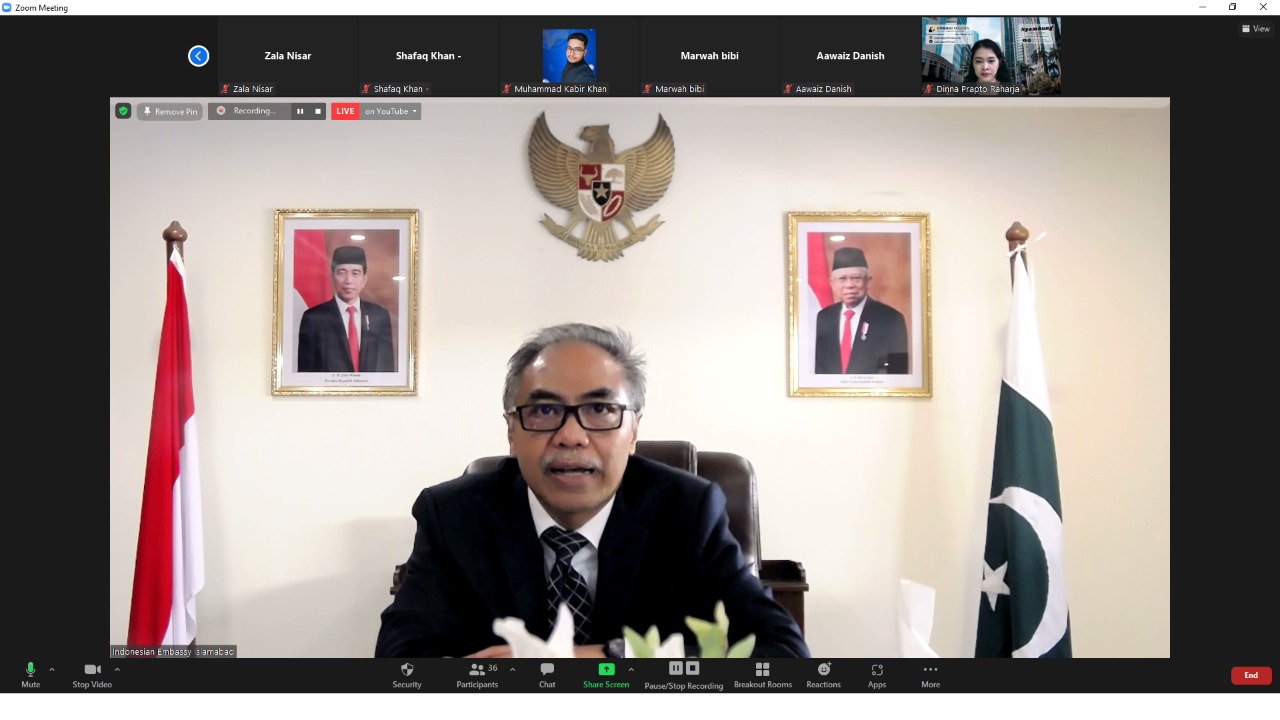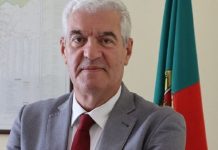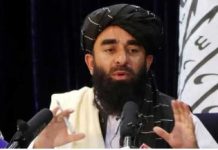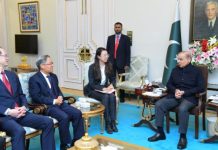DNA
Ambassador Adam Tugio has suggested a two pronged strategy to strengthen Pakistan ties with ASEAN. He said that while Pakistan needs to further develop its relationship with ASEAN states on bilateral levels but these ties should also take institutional route through ASEAN Secretariat that is headquartered in Jakarta.
Ambassador Adam was speaking at the 6th session of the Online Internship Program “Contemporary Dynamics of Indonesia” which titled “The Miracle of ASEAN”. The OIP is being jointly organized by the Embassy and University of Peshawar.
Further elaborating, the Envoy also stressed that the Pakistan should take full advantage of the recently concluded plan of actions extended for two years. He said that there were eleven potential areas that were identified by the two sides for collaboration including those of politics, economy and social & Cultural spheres.
He suggested that scholarship programs for the students from the ASEAN countries could help a lot in promoting people to people contact and general public interest in Pakistan. Ambassador Tugio mentioned that since last one year he has made sincere contributions in promoting relationship between ASEAN and Pakistan. He also mentioned of the publishing of the booklet that outlines the potential areas for cooperation between ASEAN and Pakistan.
The speaker at the OIP session, Prof. DinnaPraptoRaharja, a senior public policy advisor and a tenured Associate Professor in international relations at the Department of International Relations of Bina Nusantara University, said that the ASEAN was the fastest growing regional bloc in the world and Indonesia was at its heart being the largest country in SEA, over 270 million in population, 108,000 km in coastal lines, 17,504 islands, 8.3 million square km in territory, 3 time zones, over 1,300 ethnic groups, 300 languages, 6 religions & many traditional faiths.
Dr. DinnaPraptoRaharjaappraised the participants about the history and background of the ASEAN and said that the Association of Southeast Asian Nations was established on 8 August 1967 in Bangkok, Thailand, with the signing of the ASEAN Declaration (Bangkok Declaration) by the Founding Fathers of ASEAN: Indonesia, Malaysia, Philippines, Singapore and Thailand. She said that Brunei Darussalam joined ASEAN on 7 January 1984, followed by Viet Nam on 28 July 1995, Lao PDR and Myanmar on 23 July 1997, and Cambodia on 30 April 1999, making up what is today the ten Member States of ASEAN.
While outlining the evolution of political security contents of ASEAN meetings, Dr. Dinna mentioned that the Bangkok Declaration 1967 was primarily aimed to accelerate the economic growth, social progress and cultural development in the region. She said that Bali Concord 2 was a historic milestone which provided the framework to achieve a dynamic, cohesive, resilient and integrated ASEAN Community.
She also described the ASEAN Structure and its various organizational functions and discussed the objectives and scope of ASEAN partnerships with various frameworks such as ASEAN+ 1, East Asian Summit and ASEAN + 3. She also outlined other partnership frameworks like Sectoral Dialogue Partnerships that included Pakistan, Norway, Turkey and Switzerland.
DrDinnainformed that ASEAN Charter calls for ASEAN to develop friendly relations and mutually beneficial dialogue cooperation and partnerships with countries and sub-regional, regional and international organizations and institutionsthrough the conferment of the formal status of Dialogue Partner (DPs), Sectoral Dialogue Partner (SDPs) and Development Partner.
The guest speaker from Indonesia explained that ASEAN has no fix models for partnership and the partnerships it maintains were diverse and dynamic and variable. She said that ASEAN approach to partnership is that it interest remains central in engagements with the countries without fixing the mechanism in prompting cooperation and problem resolution.
She said that Pakistan is one of ASEAN Sectoral dialogue partner while other countries included Norway, Turkey, and Switzerland and the ASEAN has different emphasis and levels of cooperation with its Sectoral Dialogue Partners. She informed that economy, democracy and issue of terrorism were the highlights of the ASEAN cooperation with Pakistan.
Responding to a question she said Indonesia is the country that were very much interested and eager in strengthening Pakistan ties with ASEAN. However, she noted that there were other countries in the ASEAN and they have their own priorities and understanding of importance of enhancing ties with Pakistan. She said that Indonesia is there to support Pakistan but Pakistan needs to build stronger ties with other ASEAN states as well that would eventually help cement its ties with ASEAN.
Dr. Syed HussainShaheedSoherwordi, Head of Department of International Relations on the Comparative study on SAARC, thanked the Indonesian speaker for the elaborate presentation on the ASEAN history, evolution and contemporary challenges and noted that contrary to the ASEAN success SAARC which was founded with the similar vision has remained unsuccessful in meeting its objectives. He said that economy and intra-regional trade has remained hostage to the politics in the South Asia region.
He said that while EU and ASEAN were fully benefitting from the regional and economic cooperation, the South Asian states were busy locking their horns with each other and their 96% exports were destined outside South Asia.He said that India has its border with almost every SAARC country and has issues with each one of them. He said that SAARC was still a volatile region and the SAARC countries needed to work together to make it stable and attractive for the foreign investment. He said that Afghanistan has remained one of the instability factor in the region but extremism was rampant and common issue in the region.
He noted that India had progressed well economically and had established economic ties such as with ASEAN, EU and USA but it has not encouraged developing of economic ties with its neighbors. He added that SAARC countries having same products range were competing each other in the international market and in the process damaging the regional economy.
Dr. Soherwordisaid that poverty, illiteracy, economic and industrial backwardness, over population, environmental degradation were common issues among the SAARC states and they should fight together all these ills.He said that there was dire need to for the SAARC countries to lean lessons from the ASEAN Countries.

















